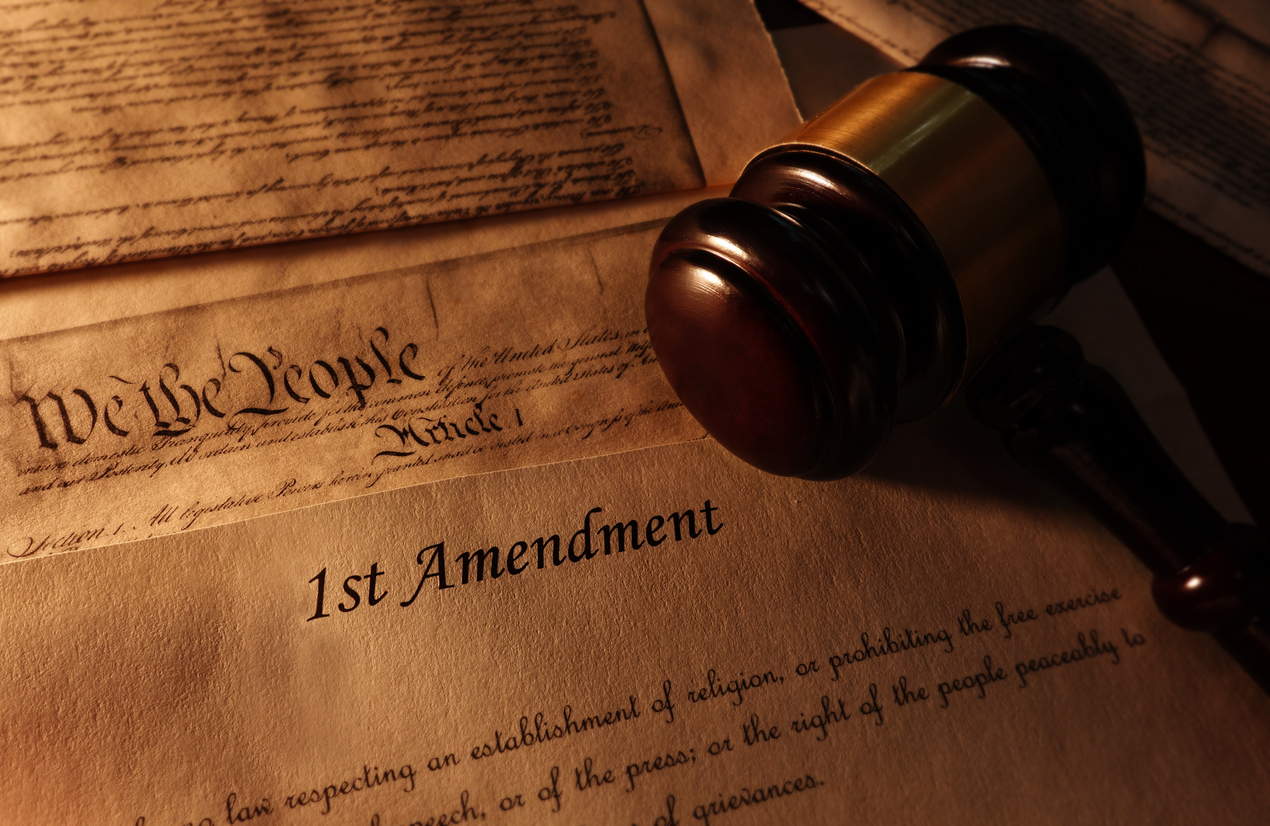Vocation of a Lawyer: Peace
By Frank DeVito
This blog is the fourth post in the "Vocation of a Lawyer" series. View Part 1, Part 2, and Part 3.
What is peace? The Scriptures speak of peace as not only a goal to strive for, but one of the fruits given to us by the Holy Spirit: “But the fruit of the Spirit is love, joy, peace, patience, kindness, goodness, faithfulness, gentleness, self-control.”1 The Catechism of the Catholic Church warns against a superficial and negative understanding of peace: it “is not merely the absence of war, and it is not limited to maintaining a balance of powers between adversaries.” Rather, peace is “the tranquility of order.”
It is good to seek peace on a large scale: peace among nations by well-ordered foreign policy decisions; peace within a state due to well-ordered families, neighborhoods, communities, and economies; peace within a family due to well-ordered relationships. But the beginning of peace, and especially its relevance for the Christian lawyer’s vocation, starts with the interior peace of the individual person, due to a well-ordered soul and a well-ordered life.
Peace through a well-ordered soul
There are many duties to which the Christian must be faithful in his life. But Jesus is very clear that what we must seek first, above all, is God’s “kingdom and his righteousness, and all these [other] things shall be yours as well.”2 If peace is the tranquility of a well-ordered soul, putting God at the center of life is the first step toward establishing order. All else flows from this.
For the married layman, the next layer is to ensure that one’s family is being properly prioritized. After one’s obligations to God (and the life of prayer that comes with it), the layman’s vocation is primarily that of spouse and parent. It is crucial to order one’s life so that hobbies, extracurricular activities, and even professional work do not take a disordered place that harms family life.
From here, one must order the remaining tasks of life – professional responsibilities, community engagement, leisure activities – in a way that honors God and best uses the time He has given us. This will take some prudence and reflection based on the individual’s unique gifts, opportunities, and personal calling. But one good rule to keep in mind is that we should not waste the time God has given us. Finding places in our lives where one is wasting time (television shows and social media feeds are common culprits) and praying for the grace and the resolve to put that time to better use can go a long way to properly ordering one’s life to be more peaceful.
This re-ordering of life is an important condition to the peace that will make for a good, effective lawyer. When God is at the center of one’s life, when a life of consistent prayer is established, and when one’s time is being spent well, one creates the ideal condition for God’s peace to reign in the soul. This peace of soul will have a major effect on the life and work of the Christian lawyer.
The effects of peace on the lawyer
Peace is a fruit of the Holy Spirit and something that should be sought by all Christians. But the effects of peace have particular significance for the professional life of the lawyer.
When consulting with a client, the peaceful lawyer reflects on the situation in its proper context and order. A client that is either dissatisfied with the status of his case or simply overwhelmed by the situation may even lash out at you. If you are a lawyer and have dealt with clients, this is likely a familiar scenario. A lack of peace could lead a lawyer to respond inappropriately to the client, or else let the exchange with the client create excessive interior drama and disquiet. But the more a lawyer has acquired peace of soul, the more he can pause, reflect on why the client is reacting in this way, and consider the best way to deescalate the situation and help the client work through the situation productively.
In court or during an intense negotiation, other parties can act in various ways that are dramatic and even hostile. Opposing attorneys may “put on a show” to impress clients or the jury. Judges may take an imposing posture as they challenge your argument. In such situations, it is easy to respond in kind. Of course, there can be good reason to use “showy” tactics in such situations, but it is important not to let pride or emotion take over. Peace of soul will lead the attorney to consider why the other person is acting this way and decide what would be the most effective way to respond. Often, the loudest, most emotional posture is not the most effective way to negotiate or to convince a judge or jury. By cultivating peace of soul, the lawyer fosters an interior life where he can intentionally consider the best response, rather than react impulsively to what is going on around him.
Finally, the question of “work-life balance,” much talked about in the legal profession today, finds an answer in the “tranquility of order” that produces peace. As we said above, peace comes when everything in one’s life is in its proper place. God and one’s relationship with Him through prayer is the central, most important aspect of life. Love for and time with one’s family takes its proper place as the center of the vocation of married laypeople. With everything in its proper order, professional life is seen for what it is: both the important means of providing for one’s family and a means of sanctification by offering every aspect of one’s work to God.
With this proper ordering of life, the Christian lawyer should find that “work-life balance” occurs naturally. The peaceful lawyer will accomplish his tasks with professionalism and diligent hard work. He will not waste time, so that he completes his work in a timely manner and is not constantly overwhelmed about approaching deadlines. And by working hard and efficiently, he will be able to give his work the amount of time it properly deserves but will not let it consume his schedule and his entire life.
Conclusion
Peace is the result of tranquility that comes from a properly ordered life. This is something that we strive for on our own, by constant prayer, reflection, and proper prioritization of the duties of life. But it is also a fruit of the Holy Spirit, something for which we need to pray because we cannot fully achieve it by our own efforts.
Realizing how important peace is, the lawyer should take the steps to order his life in a way that cultivates peace. But perhaps more importantly, he should pray for the peace that only God can bring, the peace that “surpasses all understanding.”3 Let us pray for the peace that will makes us holy lawyers able to do our work in a way that glorifies God in all situations.
Fortify me with the grace of Your Holy Spirit and give Your peace to my soul that I may be free from all needless anxiety, solicitude and worry. Help me to desire always that which is pleasing and acceptable to You so that Your will may be my will. - St. Frances Xavier Cabrini
-------------------------------------------
1 Galatians 5:22-23.
2 Matthew 6:33.
3 Philippians 4:7.
.png)




